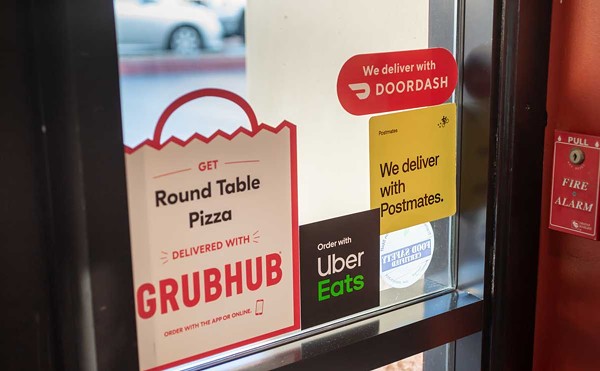It's obvious that for many metro Detroiters fast food restaurants and convenience stores are much closer than stores with nutritious fare at reasonable prices. But just how out of whack things are — and the life and death consequences that can result — have only recently been measured.
The report, Examining the Impact of Food Deserts on Public Health in Detroit, tallies, among other things, the distance to grocery stores, fast food restaurants and other food retailers from every block in the city and from most blocks in the metro area.
A key finding: Roughly half the city's residents are in areas that are "far out of balance in terms of day-to-day food availability ... they must travel twice as far or further to reach the nearest mainstream grocer as they do to reach the closest fringe location, such as fast food restaurant or a convenience store." And the cost? The report estimates that for the most out-of-balance city census tracts, the poor diet that goes with poor shopping options means 64 years of life are lost for every 100 residents; on a metro basis, the report estimates 46.5 years of life are lost per 100 residents in the worse-off tracts.
The situation isn't hopeless, the authors write, noting successes in other cities in bringing supermarket investment to underserved areas. Of course, the most recent Detroit news in this area was a major setback, the demise of the Farmer Jack chain.
The full report, sponsored by Lasalle Bank, can be read at lasallebankmidwest.com.
Eat the Page
In RAWvolution: Gourmet Living Cuisine (HarperCollins, $32.50) author Matt Amsden, renowned vegan chef, brings us a delicious way to embrace healthy eating, a major component to healthy living. With recipes that are as tasty as they are healthful, he guides vegetarians and carnivores alike to a path of dietary diversity. With eggless egg salad, cheese-free cheese sticks, Dixie Chicken, a chicken-less noodle soup and RAWvolution's Famous onion bread made from onions, flax seed sunflower seeds, Nama Shoyu and olive oil, Amsden offers the antithesis of fast food.
A Tasty Beverage
The creation of the gimlet is attributed to clever recruits in England's Royal Navy. The men shrewdly mixed their daily rations of gin and lime juice into a cocktail that would both ward off scurvy and produce a pleasant buzz. According to Raymond Chandler's 1954 novel The Long Goodbye, "A real gimlet is half gin and half Rose's Lime Juice and nothing else. It beats martinis hollow." Perhaps, but we prefer our gimlets at a ratio of three parts gin to one part Rose's Lime Juice with a squeeze of fresh lime to soften the edges.
It Works
There is a brouhaha over the supposed benefits of bottled water, some of which, we know, goes straight from the tap into the bottle. Everyone knows that the zillions of technically recyclable plastic bottles are clogging our landfills. A readily available, inexpensive alternative is the Brita Pitcher Water Filtration System. It is a plastic pitcher with a reusable and replaceable filter that is said to remove 98 percent of the lead while reducing chlorine (taste and odor), sediment copper and mercury from water. Similar systems filter water from the tap. The water does taste good. Of course, we like tap water too.
Know of any special dinners or food-related events? Let us know. Send materials two weeks in advance to Food Stuff, Metro Times, 733 St. Antoine, Detroit, MI 48226 or e-mail [email protected]





